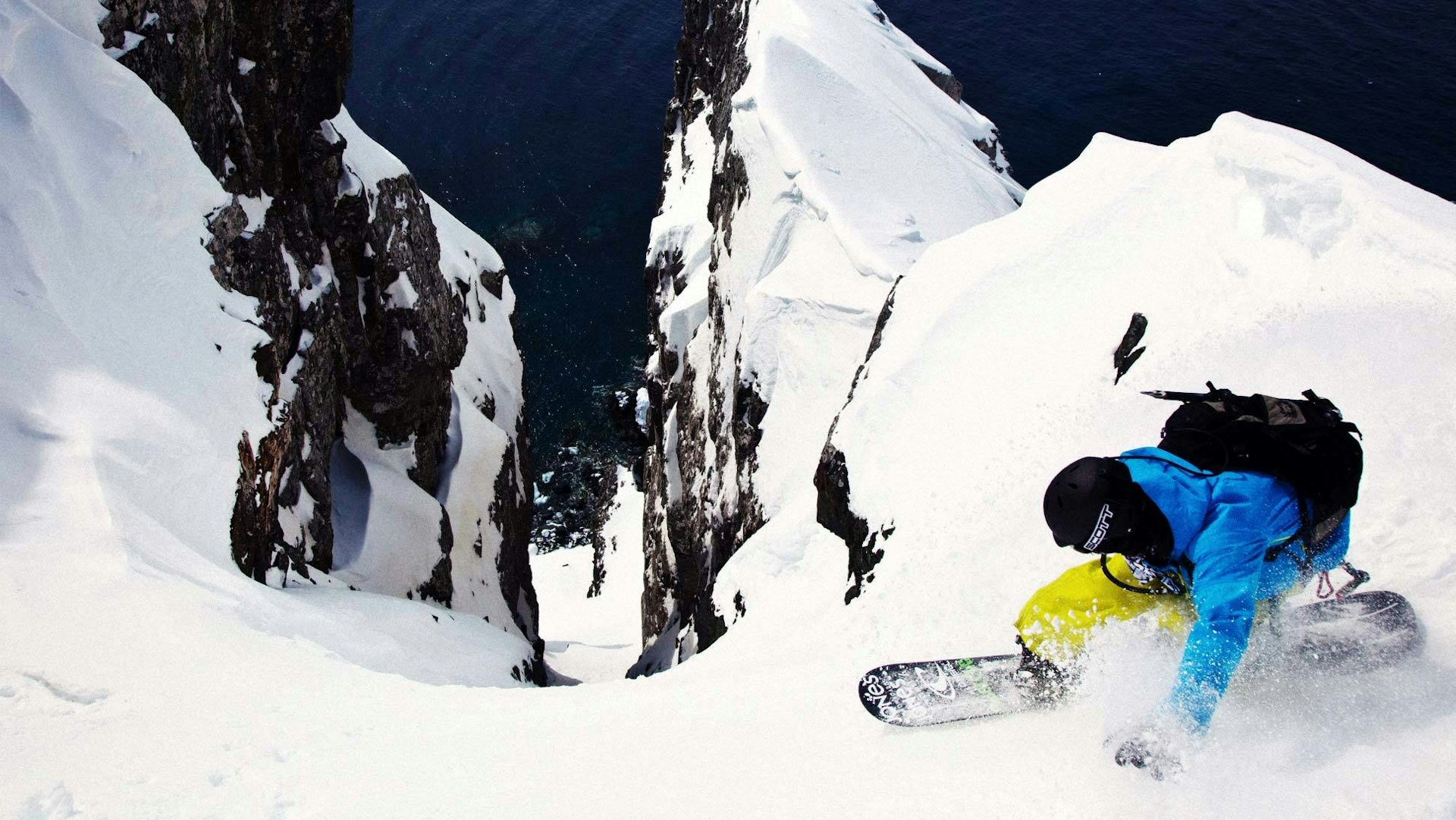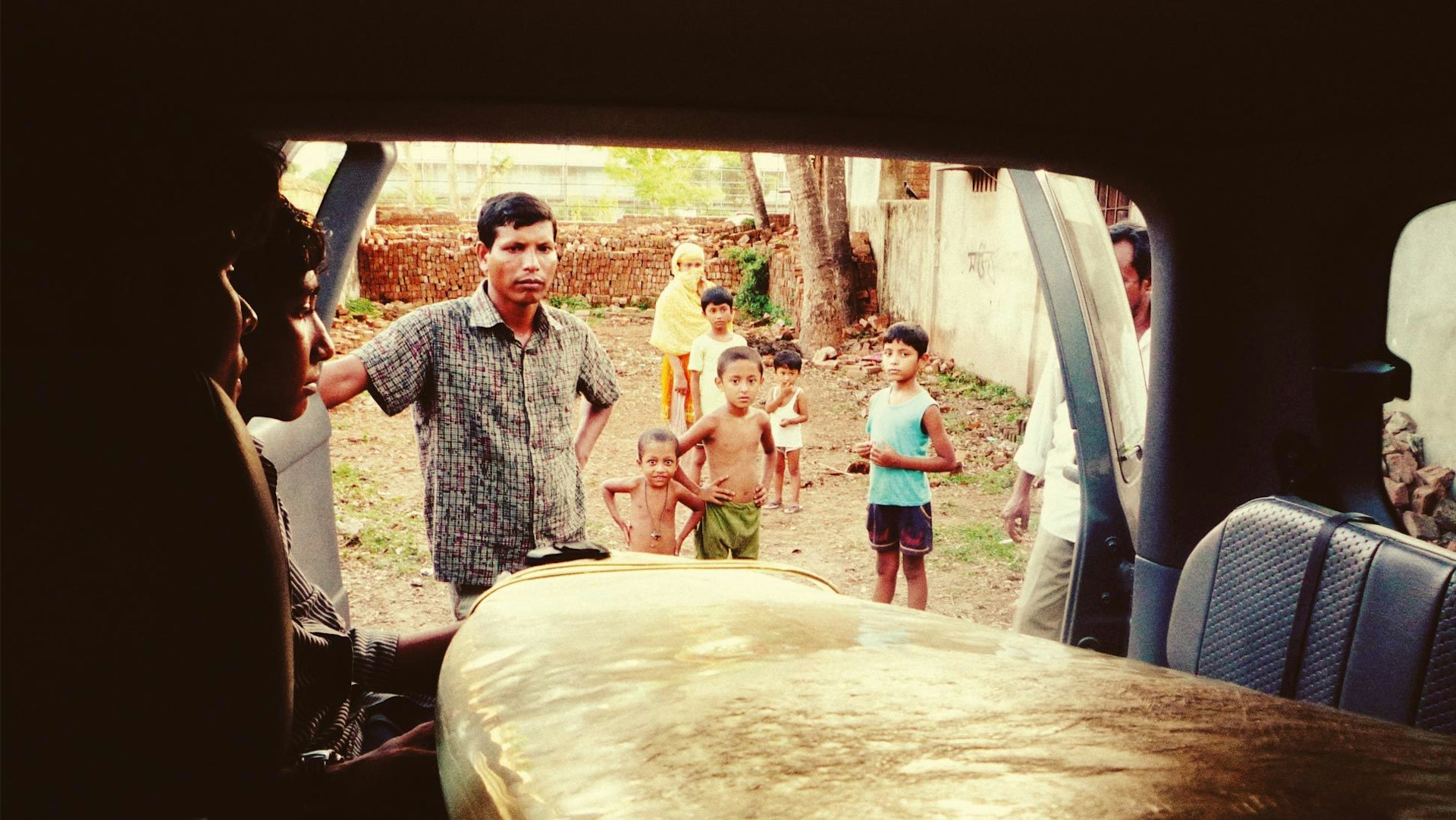
Jeremy Jones
- Text by Zoe Oksanen
- Photography by Tero Repo
Jeremy Jones has been a tad busy of late. When we catch up in February, he’s just returned from a trip to Capitol Hill where, as the founder and face of Protect Our Winters (POW), he met with lawmakers and Congress on the issue of climate change. Now the big-mountain charger is back on home turf in Tahoe for a few days before heading to Europe to showcase his new snowboard company, Jones Snowboards, at goliath trade show, Ispo. But before the political activism and entrepreneurial duties, Jeremy was venturing into new-found territory in Antarctica, clocking up numerous first descents on previously untouched peaks while filming for his mould-breaking, two-year movie project, Deeper.
It’s exhausting – just thinking about the exploits of one of the most multi-faceted athletes of our time. And yet, at thirty-four, Jeremy shows no signs of fatigue. In fact, it’s like someone put dynamite in his snowshoes as Jeremy continues to push snowboarding into entirely new and untapped territory, showcasing snowboarding as a survival sport and driving the renaissance of freeriding, while proving that $100 a day lift passes no longer need to stand in the way of transcendental snowboarding experiences.
It seems like you’ve entered a new phase in your snowboarding career. Not only have you left long-term sponsor Rossignol to create your own snowboard brand, you’ve also upped your political presence with POW and pushed backcountry exploration into a new heli-free realm. Are all these things the outcome of a conscious decision or are they part of some subconscious evolution?
It is an evolution. With everything in my life I am trying to gain more and more control of my world, surround myself with very passionate people and reduce my impact on the environment. I always knew I wanted to take my snowboarding further away from crowds and into the vast unridden zones that are hard to reach. I am now finally doing exactly what I want to do with movies, boards and more.
Protect Our Winters, the non-profit organisation that you established in 2007, seems to be gaining momentum – what with your recent presence on Capitol Hill to discuss the issue of climate change. Did you get a good insight into the political forces shaping an issue so close to your heart?
It was intense to see the inner workings of democracy on Capitol Hill. The people we met with had a strong passion for making the country a better place to live and put everything they had into their job. Their passion for democracy is very similar to my passion for the mountains.
What is POW doing on a daily basis to educate people about climate change?
Climate change is a complex problem, and Protect Our Winters is fighting it on many fronts. From getting formal education into schools so future generations learn about both the problems and the solutions of climate change, to supporting alternative energy projects, protecting a very volatile part of the Atlantic Rainforest, and rallying our base to support key policies.
Jones Snowboards is carving out a new niche in the snowboard world as a producer of purely freeride boards. Five years ago, that could have been a risky endeavor, but it seems that the world of snowboarding is rediscovering its love for freeriding. Why do you think that is?
The average age of snowboarders goes up every year. The sport is maturing and riders are learning that there is more to snowboarding than just the park. It is important for snowboarding to inspire these people to stay in the sport by offering innovative products for riding the whole mountain. The other growth I am seeing is with split-boarding. Split-boarding is free once you have the set up and riders are realising that great snowboarding and solitude are both lying right off the side of the road – if they are willing to hike for it.
Having always been involved in the development of your boards with Rossignol, was starting your own board company an idea you secretly harboured for a long time?
Up until a year ago, I had not given it much thought. I was looking for change. I wanted to be surrounded be people that had the same level of passion for the sport as me and I really wanted to give freeride boards the attention they deserve. It became clear to me that in order to achieve my goals, I needed to start my own company.
There will always be cynicism surrounding snowboard and surf companies’ claims that their goods are environmentally friendly, as ultimately we all know the products we use can’t be entirely green. How far can you actually go in attaining carbon neutrality in the production of snowboards?
All snowboards are toxic. We are committed to evolving the manufacturing process and the materials we use to make a much less toxic snowboard, but I do not see us making a one-hundred percent carbon neutral, cradle-to-cradle snowboard anytime soon. The other message we want to get out is that snowboards have a much longer life than people realise. Many riders are buying new boards to have the latest graphic. This is why we have simple graphics that we hope will not fall out of fashion like a lot of the flavour-of-the-month graphics do. We reduce our product’s footprint as much as possible and then offset the rest by giving one percent of sales to Protect Our Winters.
With all the big companies putting their marketing budgets into freestyle and contest riders, we were excited to see Jonaven Moore’s name listed as a Jones Snowboards rider. Do you plan to create a full team of backcountry riders?
Helping up-and-coming freeriders find a platform to show their skills is very important for the sport and us as a brand. We have a small team of freeriders that ranges from up-and-comers like Ryland Bell to legends that are still charging like Jonaven Moore. You will see some fresh faces in my movie, Deeper, as well as the established chargers that the snowboard media has passed up.
You are Snowboarder’s eight-time Big Mountain Rider of the Year. Having become synonymous with the backcountry, does urban riding seem like an entirely different sport?
Urban riding is at the other end of the sport but the ethos is similar to freeriding in the sense that, like freeriders, urban riders are not relying on resorts to get their fix and there are no rules or guidelines to where or how they ride. It is important for snowboarding to embrace all facets of the sport. Recently, I’ve met a few split-boarders that have pretty much been involved in every aspect of the sport from urban, to pipe and park and now splitting, and I’m envious of those riders that have literally experienced it all.
How do you feel about park kids who can put down a double cork yet can barely snowboard their way to the kicker?
I call that ‘the lost art of the turn’. It is sad because I often see established pros who want to evolve into freeriding but they have a bad turn and you cannot hide a bad turn when filming freeriding. It is really only a problem in the US. Every mountain in the US has a sick park with its own lift so that kids never have to find their own jumps. In Europe it is much more raw and the riders are much more well-rounded and can ride anything. Guys like Nicolas [Müller], Gigi [Rüf] and Wolle [Nyvelt] are good examples of this. One of the only guys in the US that can hang on that level is Travis Rice and that has a lot to do with the lack of a park at his home mountain, Jackson Hole.
The trailer for Deeper is pretty dramatic. Should we be expecting a lot of drama in the movie?
The whole movie will not be as dramatic as the trailer. In parts of the movie, we are riding very critical lines in hard-to-reach areas making what we are doing very dramatic, but there will also be some fun-loving, pillow-bashing pow.
You’ve been blogging about your trips to places like Antarctica – which in particular sounded like an unreal experience. How did it compare to your experience of remote parts of Alaska?
It was nature on acid. There was such a high density of sick terrain surrounded by wildlife everywhere. I was so wired during that trip that I could not sleep at night because the days were twenty-one hours long. We would have huge days on snow hiking lines, and then get back to the boat and watch these never-ending sunsets as we passed by the best mountains in the world while watching whales.
You seem to be spending a lot more time hiking and have even camped thirteen-thousand feet up in the mountains to avoid being dropped off by helis or sleds. Is this the way forward for you now?
Now that I have realised that world-class freeriding can be done without a heli or a sled, it has opened up the world to me. Everything is in play now whereas in the past we only had access to about five percent of a mountain range. My hit list of lines is now endless. So my focus is on these areas. But I don’t want to claim I will never get in a heli or use a sled again.
Do you ever go to drop in on a line and think, ‘I’m not really feeling this right now’ and want to bail?
‘Live to ride another day’ and ‘Just say no’ are two things I say to myself hundreds of times when I am looking at riding a serious line. If at any point something does not feel right then I step down. When stepping in to serious lines I need to turn all these no’s into yes’s. If I turn nineteen no’s into yes’s but the twentieth comes up short, then I step down.
How does your wife cope with the dangerous aspects to your life?
My wife has a lot of trust in my snowboarding but it is still very hard for her. The one downer about riding these lines on foot is that it takes a lot more time. Even if I am filming at home in Tahoe it usually takes a night or two of camping to get a shot. For Alaska, my trips are twice as long and I am out of touch most of the time. Using helis, I got to a point where I could shoot a video part in two weeks if the conditions were right.
Finally, we have to ask: does it drive you mad if people mix you up with Jeremy Jones, the rail dude?
I do not get that much, but it does happen. It is something I have grown up with and has never made me mad. Jeremy is an awesome rider.
